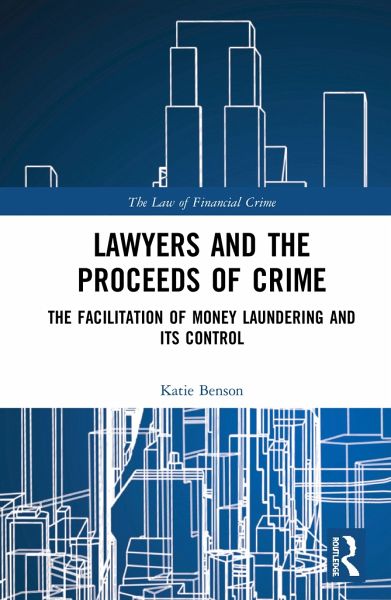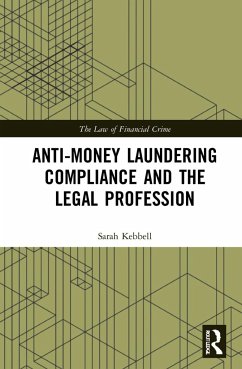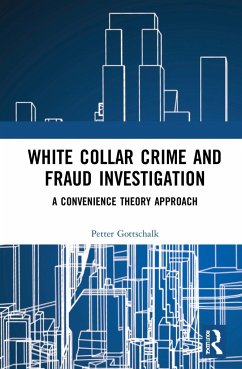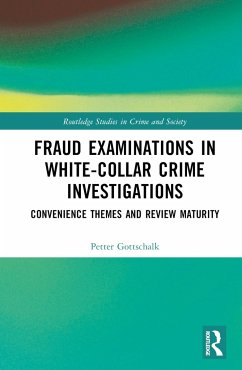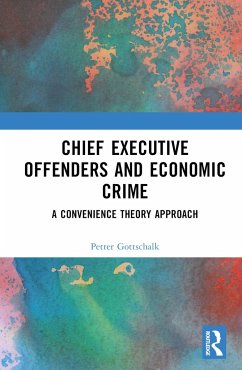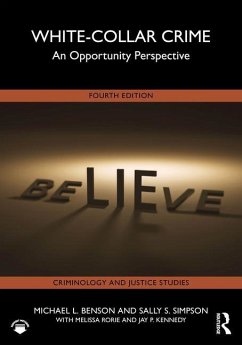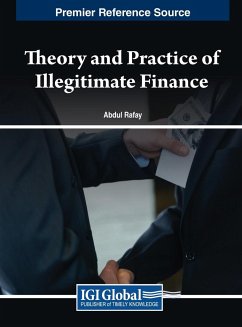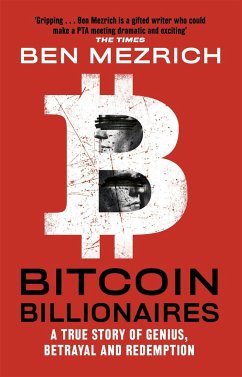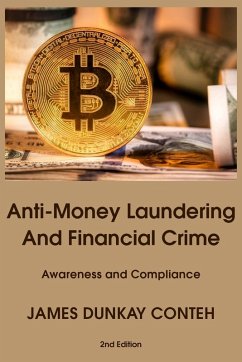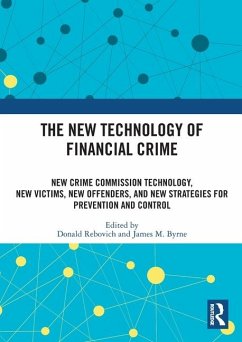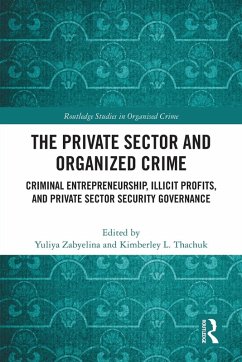Katie Benson
Gebundenes Buch
Lawyers and the Proceeds of Crime
The Facilitation of Money Laundering and its Control
Versandkostenfrei!
Versandfertig in 1-2 Wochen
Weitere Ausgaben:

PAYBACK Punkte
93 °P sammeln!





This ground-breaking book presents an in-depth empirical analysis of the nature of lawyers' involvement in the facilitation of money laundering, and its control through criminal justice and regulatory mechanisms.
Katie Benson is Lecturer in Criminology at Lancaster University, where she teaches and researches in the fields of money laundering and organised, white-collar and financial crimes. Her current and recent research focuses on money laundering, anti-money laundering and the legal profession; (anti-)bribery and corruption in multinational businesses; the distribution of counterfeit alcohol; and the development of an alternative framework for the conceptualisation and analysis of money laundering. Dr Benson previously held roles within UK law enforcement and has worked with, or provided advisory/consultancy services to, various government bodies, law enforcement organisations, research institutions and investigations.
Produktdetails
- Verlag: Routledge
- Seitenzahl: 220
- Erscheinungstermin: 17. April 2020
- Englisch
- Abmessung: 240mm x 161mm x 17mm
- Gewicht: 499g
- ISBN-13: 9781138744868
- ISBN-10: 1138744867
- Artikelnr.: 59423982
Herstellerkennzeichnung
Libri GmbH
Europaallee 1
36244 Bad Hersfeld
gpsr@libri.de
The role of legal professionals in the laundering of criminal proceeds is widely acknowledged, while little empirical research has been done on this crucial node in money laundering schemes. In studies of money laundering, the role of lawyers gets lost between the research traditions of studying either white-collar crime or studying organized crime. This book fills that gap by offering the most complete and up to date account of the facilitation of money laundering. It connects upperworlds and underworlds by focusing on the lawyer as a modern day Charon, the mythical ferryman of the underworld.
Wim Huisman, Professor of Criminology, Vrije Universiteit Amsterdam
Given ongoing emphases on high-end money
Wim Huisman, Professor of Criminology, Vrije Universiteit Amsterdam
Given ongoing emphases on high-end money
Mehr anzeigen
laundering, gatekeepers, and facilitators of money laundering, this timely book provides important new insights into money laundering, and anti-money laundering, in the legal profession. This book not only examines the AML regime and how lawyers launder proceeds of crime, it goes further by examining punishments following conviction. The book challenges entrenched views of (anti-)money laundering, and delivers important new insights based on original empirical research. I highly recommend it!
Colin King, Reader in Law, Institute of Advanced Legal Studies, University of London
This is a commendably thorough and thoughtful analysis of identified money laundering by the legal profession in England and Wales (and to a lesser extent, around the world), and of barriers to criminal, regulatory and practical interventions against it.
Michael Levi, Professor of Criminology, Cardiff University
If you're an individual or organisation generating significant finances from criminal activities and want to use this to purchase assets, you need to be able to conceal the criminal origins of the money, and legal professionals can help you do this. In this book, Benson empirically analyses and contextualises the opportunities for, and nature of, such criminal facilitation, and in doing so provides rich insights into the drivers and conditions that lead to these otherwise legitimate 'white-collar' actors laundering criminal proceeds on behalf of others.
Nicholas Lord, Professor of Criminology, University of Manchester
Colin King, Reader in Law, Institute of Advanced Legal Studies, University of London
This is a commendably thorough and thoughtful analysis of identified money laundering by the legal profession in England and Wales (and to a lesser extent, around the world), and of barriers to criminal, regulatory and practical interventions against it.
Michael Levi, Professor of Criminology, Cardiff University
If you're an individual or organisation generating significant finances from criminal activities and want to use this to purchase assets, you need to be able to conceal the criminal origins of the money, and legal professionals can help you do this. In this book, Benson empirically analyses and contextualises the opportunities for, and nature of, such criminal facilitation, and in doing so provides rich insights into the drivers and conditions that lead to these otherwise legitimate 'white-collar' actors laundering criminal proceeds on behalf of others.
Nicholas Lord, Professor of Criminology, University of Manchester
Schließen
Für dieses Produkt wurde noch keine Bewertung abgegeben. Wir würden uns sehr freuen, wenn du die erste Bewertung schreibst!
Eine Bewertung schreiben
Eine Bewertung schreiben
Andere Kunden interessierten sich für




